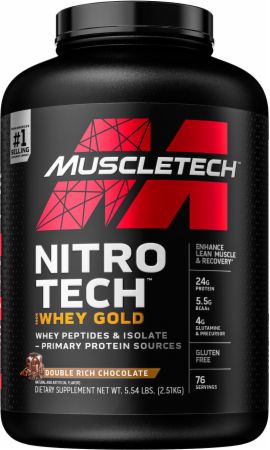When you think of big arms, the biceps and dumbbell curls are first on your mind. But if you’ve been training for longer than a week, then you’ve probably heard that triceps, not the biceps, are equally important for arm mass above the elbow.
Resist the urge to take that knowledge and simply bang out reps of heavy extensions and push-downs during your workout and think you’re good. There are much more effective ways to build those horseshoes, no matter if you’re using dumbbell, barbell, and machine moves. How you train this muscle matters if you want solid workout results.
Here’s what to do.
Tip 1: Prepare Your Elbows for the Workout to Come
Think about every major triceps-building exercise that could be done in a workout. What do they all have in common? The elbows bend, rep after rep. And all that work and all those reps using the elbow joints, compounded by heavy resistance, can take its toll if you don’t prepare them accordingly.

Starting your triceps workout with few light sets on a cable push-down machine, using an overhand grip, can be a big benefit to overall health of the elbows. Using a cable movement provides even resistance and helps send blood to the back of the arm as it warms up the elbows. This extra preparation can help decrease elbow pain not only during the session, but in pay off in other upper body movements as well.
Tip 2: Do Big Presses For Big Triceps
Once you have done some warm-up reps and those triceps muscles are firing, you're ready to place some heavier loads on those muscles—and you'll need to. More than the biceps, the triceps need that stress and load to break down fibers and generate mechanical tension. When you recover, your triceps will be prepared for those same kinds of heavier loads next time. This translates into strength gains in addition to increased size in the upper arms.
You have two classic choices here: the close-grip bench press, or the triceps dip. But technique matters for both! Before starting your reps on the close-grip bench, make sure your hands are shoulder-width apart so your wrists aren’t affected negatively. When it comes to dips, if your bodyweight isn’t enough resistance, throw on chains, wear a dip belt with plates, or hold a dumbbell between your ankles.

Tip 3: Save Overhead Work for Later in the Workout
Variations on overhead triceps extensions can take a toll on not just the elbows, but the shoulders, too. If you do them later in the workout, you can get by with using less weight and they will still be productive, while sparing your shoulders. This applies to both dumbbells and barbells.

Really looking to get the most out of these moves? Do the triceps extensions one side at a time. This forces each side to do its own work and often opens up more range of motion, with less shoulder stress, than doing them with both arms at the same time. Get a good stretch at the bottom but don’t force it. Press the dumbbell up in a controlled fashion, and all three heads of the triceps will feel it by the last rep. Your arms and shoulders will both thank you.
Tip 4: Finish Your Workout with A Bodyweight Burn Out Set
When it comes to pumping blood into the muscles and finishing a session strong, basics are best. Diamond push-ups are a perfect choice because they shift the emphasis to the tris while minimizing chest recruitment.
Go to complete failure on the push-ups before stopping. You don’t even have to count these. Just rep out! The goal is to tap those triceps out. As soon as you do, get out of the gym and start focusing on recovery so those arms can grow.



